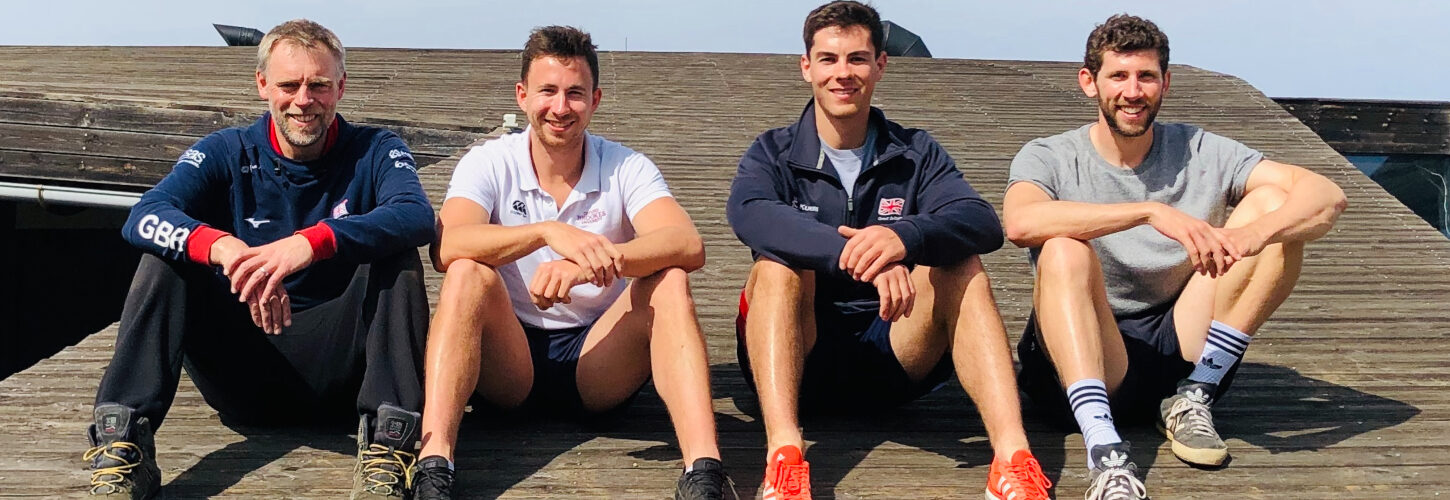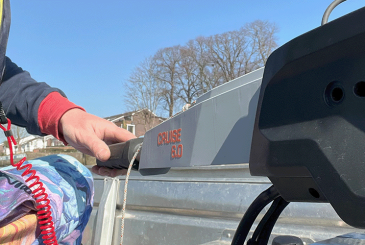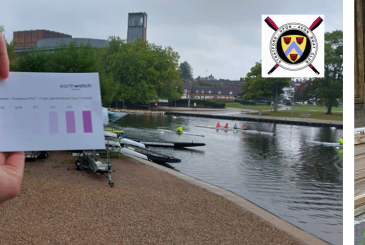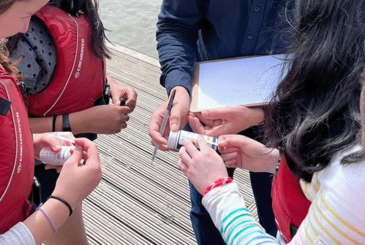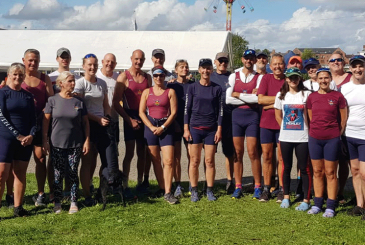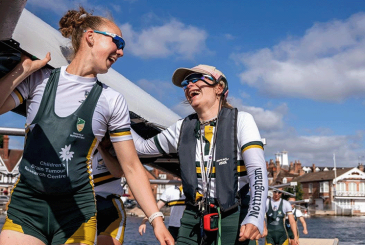As rowing benefits from the global Olympic spotlight, GB Rowing Team coach Steve Trapmore talks to Martin Cross about the impact of the National Lottery funding on rowing and how it helped his own career
“I’ve been buying lottery tickets ever since they started supporting rowing. Maybe I can win some money. But more than that it’s what buying the ticket represents in many, many walks of life at all different levels,” says Trapmore.
The National Lottery could have no finer ambassador than GB Rowing Team coach Steve Trapmore, who leads the men’s sweep squad. And the Sydney Olympic champion took time out from his busy schedule to explain just how important the lottery has been to his own rowing career since he started out at Walton Rowing Club back in the early nineties.
The 45-year-old went on to say: “I hope that everybody who buys a lottery ticket is really proud that some of the money they spend goes to supporting sport and the arts.”
Perhaps, more than anyone, Trapmore is in an enviable position to assess the benefits that close on £150 million of lottery money has given to his sport since the start of the Sydney Olympiad. He came into international rowing just as the lottery grants were coming on stream back in 1996.
As stroke of the eight that won the 2000 Olympic gold, Trapmore knew exactly how his crew had benefitted from the injection of cash. Later in his career as a coach with Imperial College Boat Club, his club was directly supported by the Lottery as a national performance centre. And now in his role as a men’s sweep coach at Caversham, Trapmore is at the centre of perhaps the world’s most enviable training environment for international rowing.
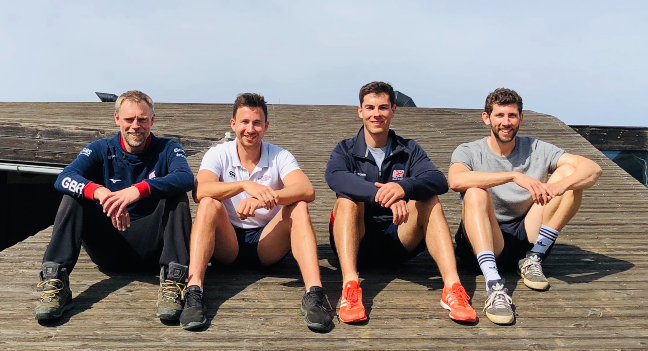
It’s a unique perspective and the softly spoken coach is understandably grateful for the support he’s had.
“In my early years as a student, rowing at Nottinghamshire County Rowing Association, we had to pay for our own travel to training camps to Banyoles. But it was when I first got a small lottery grant that I had cause to be thankful.
“It wasn’t possible to do our level of training and hold down a job. So, getting funding to pay for our living expenses was absolutely vital to our win in Sydney”
“It made a huge difference to the food I was able to afford. Being on the small side, I always felt I had to maximize my recovery time and better nutrition played a massive role in that.”
As success came to Trapmore’s international career, with a bronze medal in the coxed fours in 1997, the size of his lottery grant increased. It enabled him to move to Henley to train with the national squad there and then, in 1999, to fund the cost of accommodation and living expenses in London with Martin McElroy’s eight’s squad.
“It wasn’t possible to do our level of training and hold down a job. So, getting funding to pay for our living expenses was absolutely vital to our win in Sydney.”
And, of course, that success was vital.
The eight’s win, together with Steve Redgrave’s fifth Olympic gold and Katherine Grainger’s first silver, as part of the women’s quad, ensured that rowing received an increase in funding that allowed it to prepare for Athens with renewed confidence. Already the sport was becoming more professional. A clear sign of this was the World Class Start programme which began in 2001 with lottery funding.
And Trapmore acknowledged the enormous impact of this on the GB Rowing Team’s ability to win Olympic medals.
“So many athletes have come through that programme that have gone on to become lynchpins in various Olympic boats. Too many for me to mention, but Moe Sbihi, Helen Glover, Heather Stanning and Alex Gregory really stand out.”
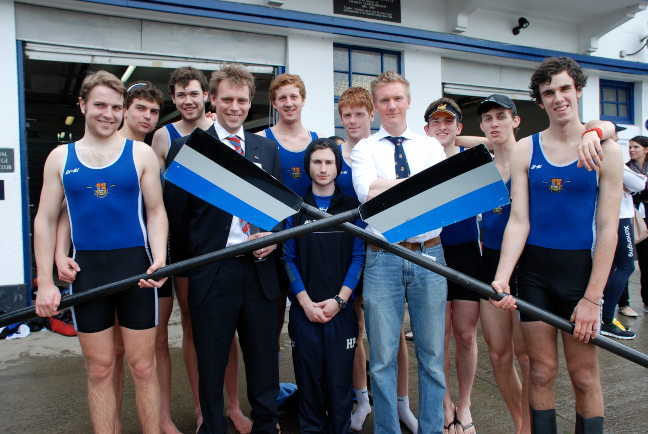
All those athletes stood to benefit from the massive injection of lottery cash that rowing received in the Beijing Olympiad: from £10.6 million during the Athens cycle to over £26 million. Indeed, added to that should be the £1.3 million that Para-rowing had begun to receive.
At the same time, the Redgrave Pinsent Lake and Sherriff Boathouse opened in 2006 – in part supported by lottery money, through Sport England.
For Trapmore, that provided the impetus for rowing’s success.
He is also at pains to point out that the whole rowing community has benefitted from the injection of lottery funds
“Without the lottery funding, the ability of squads to train at one amazing venue and have their own 2,000m lake just wouldn’t have happened.”
The former Cambridge University Boat Club coach adds: “It’s not just the lake, but also the level of support that exists for athletes in that environment. GB Rowing has full-time medical and psychology support, led by Dr Ann Redgrave. Marcin Mazur, our chef, provides fantastic nutrition between sessions to help athletes to maximise their recovery.”
He says: “Add in vital support services like physiology and biomechanics and you can see that it really is a marvellous high-performance environment.”
As an athlete, Trapmore remembers the limited support he had from the British Olympic Association in terms of careers advice.
“Now, with lottery funding, that’s taken a quantitative leap forward with lifestyle counsellors to support athletes in their transition from international sport.”
Trapmore explains: “The athletes always have someone to talk to who will support them. It’s inspirational and produces an environment where it’s possible to train really well.”
But he is also at pains to point out that the whole rowing community has benefitted from the injection of lottery funds.
“You look at many traditional clubs like Molesey and Walton, schools, universities or community projects like Fulham Reach and London Youth Rowing and they all have developed as a result of grants.
“At Imperial College Boat Club, it was lottery money that helped realise a major facility development in the late ‘90s and a few years later when I was head coach it was lottery-funding support through British Rowing that allowed me to employ another coach and provide greater capacity for student athletes to experience rowing.”
One can’t help, but hear the pride and enthusiasm in Trapmore’s voice as he talks about what has been made possible since the National Lottery came on stream. It’s one reason why he plans to continue buying his ticket for the foreseeable future.
Photos: Steve Trapmore


